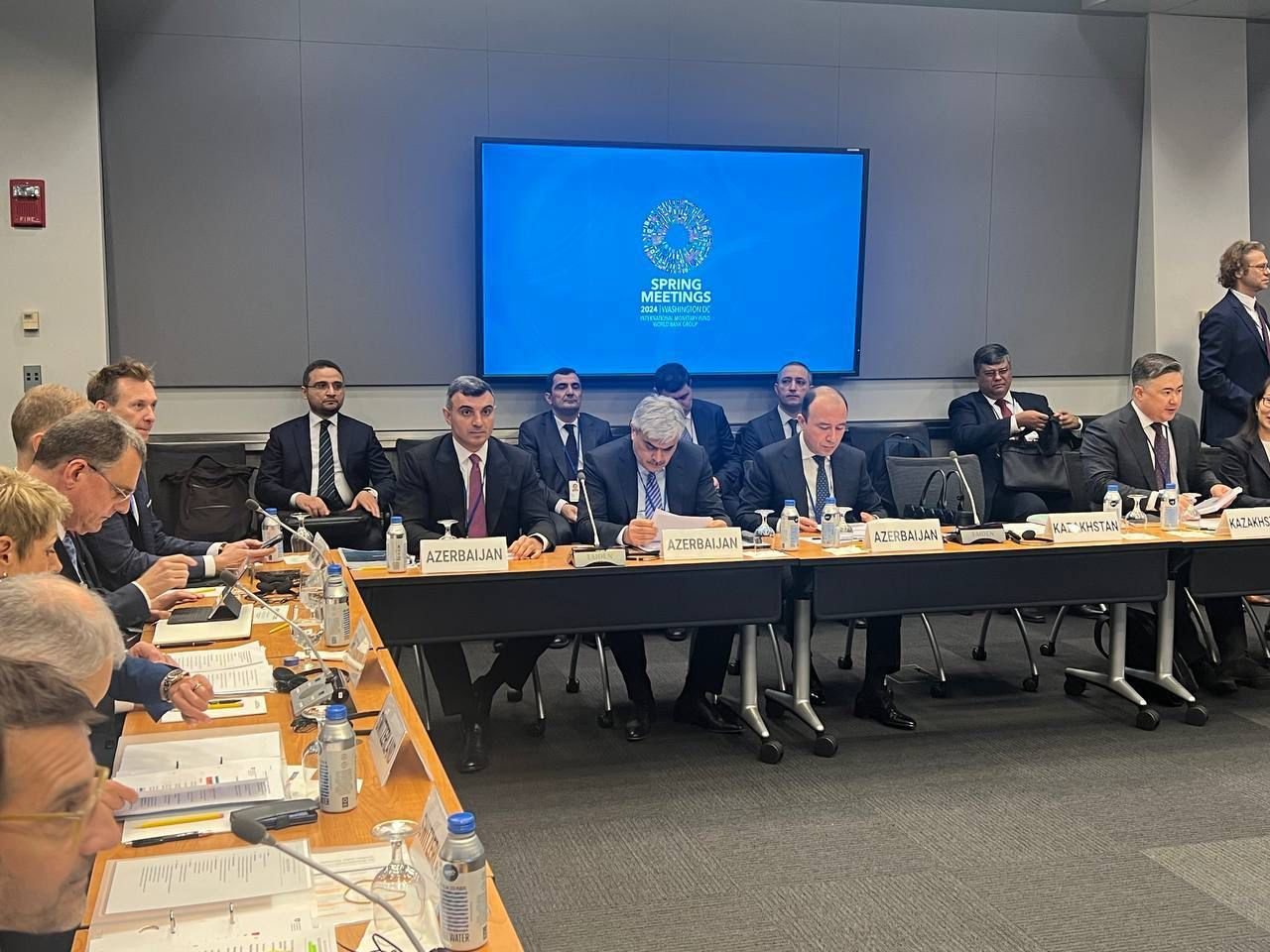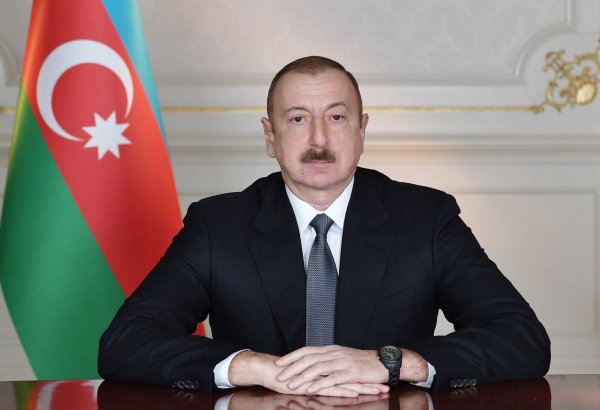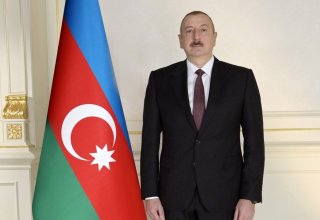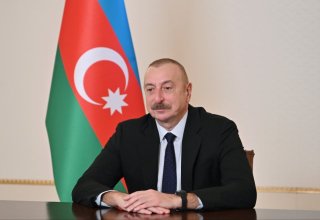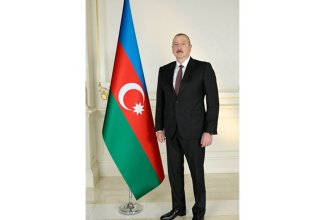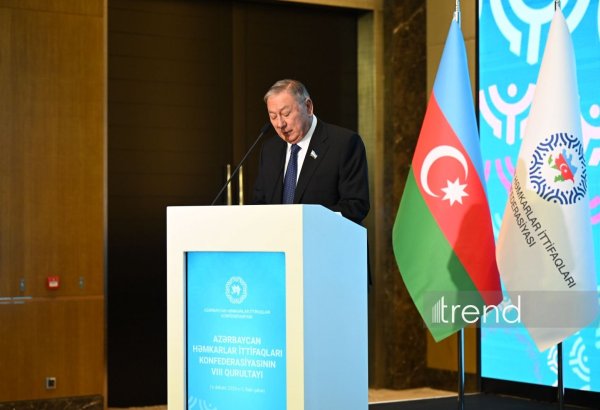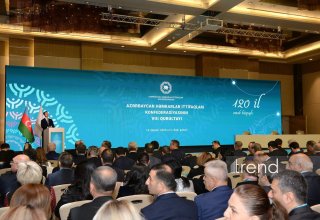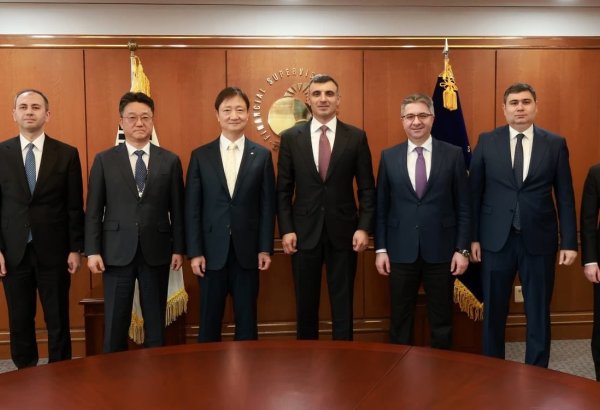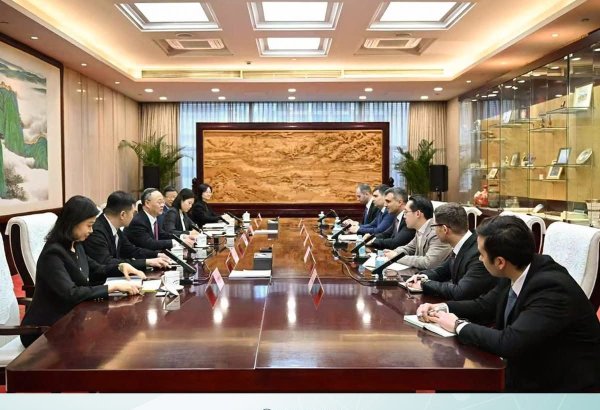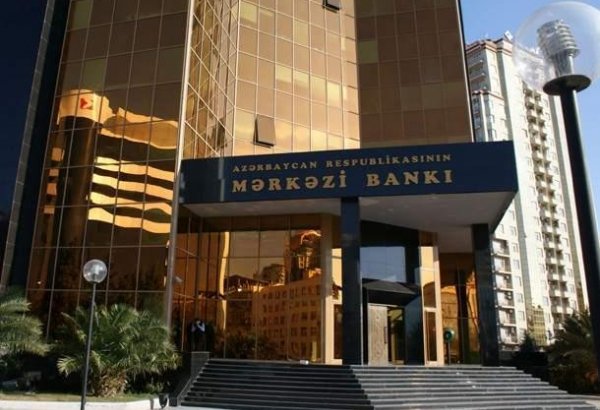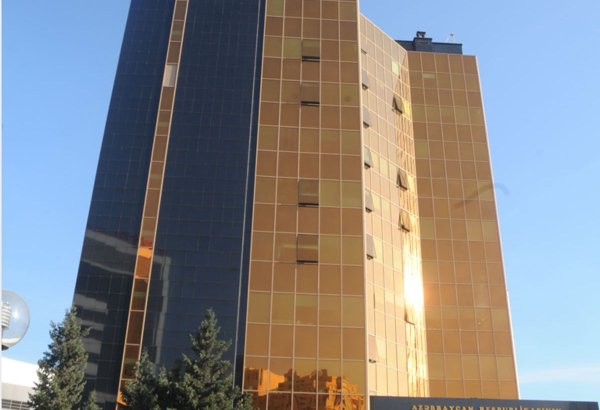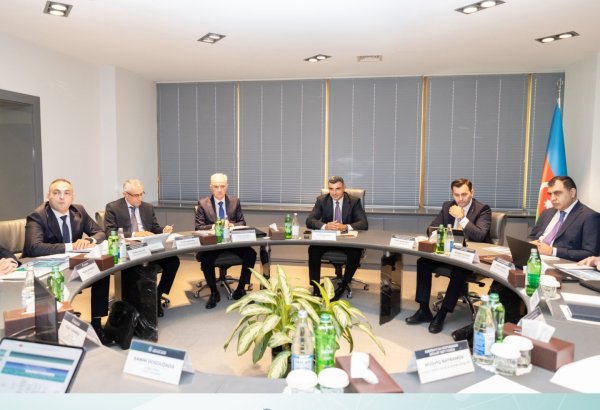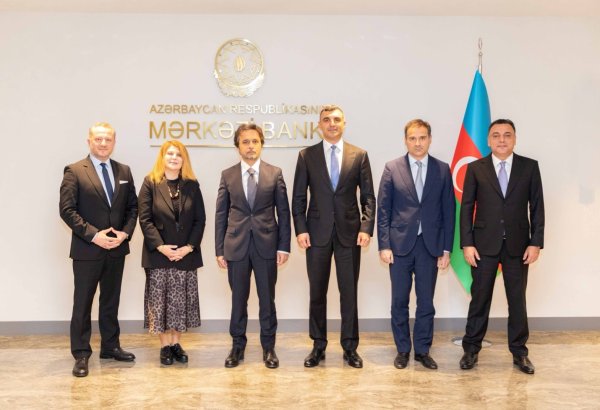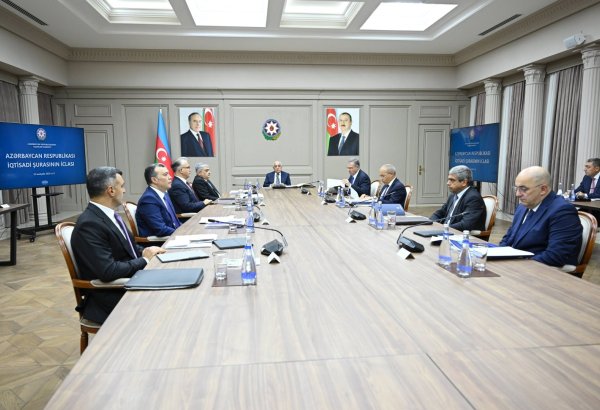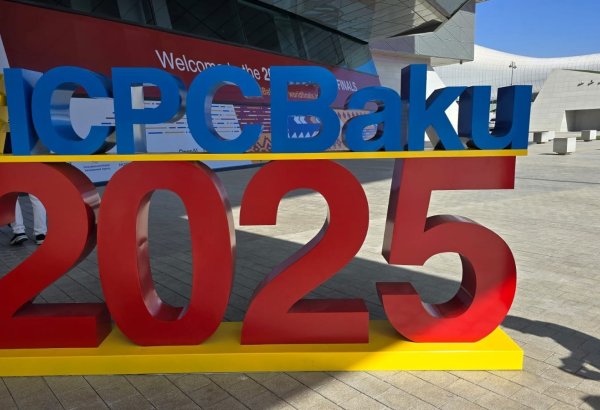U.S., WASHINGTON, April 19. Cooperation with the World Bank (WB) will further contribute to building a more sustainable economy not only in Azerbaijan but throughout the region, said Taleh Kazimov, Governor of the Central Bank of Azerbaijan, addressing the Constituency Meeting held as part of the IMF and World Bank Group (WBG) Spring Meetings in Washington, TurkicWorld reports.
He pointed out that aiming to secure sustainable, inclusive, and resilient growth Azerbaijan has set a determined course to diversify the economy.
"Significant progress has been made in this regard. Over the last 20 years, the gross domestic product (GDP) has increased five times. The export of non-oil goods over the last two decades has increased around 9 times. In 2023, the export value of the non-oil sector increased by 11 percent compared to 2022 reaching $3.3 billion. Strategic foreign exchange reserves were estimated at $68.5 billion, marking a significant increase of 17 percent in 2023. Azerbaijan’s current account surplus amounted to $8.3 billion, which is 11.5 percent of the country’s GDP in 2023. According to the base scenario of the CBAR forecasts projections for current account surplus is around $7 billion, for foreign trade surplus is $10.6 billion for 2024," said the Central Bank's governor.
Kazimov went on to add that an annual inflation rate has been easing in Azerbaijan.
"In February 2024 twelve-month inflation stood at 0.8 percent and twelve-month core inflation stood at 1.4 percent. The indirect impacts through imported goods prices have been the main source of inflation in Azerbaijan over the past three years. In the post-pandemic period, the increase in inflation of trading partners peaked at 22 percent in September 2022 and gradually halved within 2023. However, for three years Azerbaijani nominal effective manat appreciated by around 15 percent per year, which was the primary factor in easing inflationary pressures. The CBAR projects annual inflation to be at 5.3 percent for the end of 2024," said Kazimov.
He pointed out that the CBAR has implemented a series of reforms aimed at enhancing monetary policy transmission.
"This includes the introduction of new monetary policy tools and the support of interbank market development for improving monetary transmission. For the first time, the CBAR has published the benchmark rate indexes at the unsecured (AZIR - Azerbaijan Interbank Rate) and secured (AINA – AZN Index Average) segments of money market. The yield curve estimated on government bonds has been published on the website of the CBAR weekly for the first time. Due to these reforms, the weighted average interest rates on both manat denominated unsecured and secured deals between banks in the money market have stably moved within the interest rate corridor of the Central Bank for the first time. These reforms continue to amplify the transmission of short-term interest rates in the money market to other interest rates including deposit and credit rates," said the governor of Azerbaijan's Central Bank.
He noted that during this time, the stability of financial institutions, financial markets, and financial infrastructure have been ensured.
"The banks' high capital adequacy and liquidity positions which have been around 18% and 60% respectively over the last 2 years being two times more than the norms. The credit portfolio of the banks has been experiencing steady growth of 17.9 percent over the last 3 years without compromising price stability in the country. Non-performing loans has shrunk to 2.8 percent in February due to the improved quality of credit portfolio. Significant progress has been achieved in terms of de-dollarization. The foreign currency savings of households to total savings has declined to 35.3 percent in February," said Kazimov.
He went on to add that the CBAR has unveiled for the first time a new strategy that focuses on the priorities of supervision and regulation in the banking sector, and the development plans of the financial sector.
"The strategic objectives of the "Financial Sector Development Strategy 2024-2026" include enhancing financial inclusion and encouraging depth and diversification of financial instruments, facilitating efficiency, safeguarding transparency, and strengthening the resilience of the financial sector. Supporting professional growth of the market is at the core of the strategy. This strategy reflects our commitment to the transition towards sustainable finance, which will be an effective mechanism in addressing climate-related risks on a systematic level," said the Central Bank's governor.
Kazimov further noted that Azerbaijan was chosen to host COP29.
"2024 marks the ‘Year of Solidarity for a Green World’ in Azerbaijan. Hosting and leading COP29 recognizes Azerbaijan’s endeavors in addressing climate change not only at national, but also at regional and global scale. Our role as COP29 Presidency provides an important opportunity to engage our international partners to advance climate action for the benefit of our planet. COP29 will prioritize finance as a critical enabler of action that helps us to enhance ambition. We truly believe that the cooperation with the WB will further contribute to building a more resilient and sustainable economy not only in Azerbaijan but throughout the region," he concluded.
The Spring Meetings of the International Monetary Fund and the World Bank Group kicked off on April 15.
The main ministerial meetings and events will take place April 17-19 with other events and activities taking place during the week, April 15-20.
At the heart of the gathering are meetings of the joint Development Committee and the IMF's International Monetary and Financial Committee, which discuss progress on the work of the World Bank Group and the IMF.
The Spring Meetings bring together central bankers, ministers of finance and development, parliamentarians, private sector executives, representatives from civil society organizations and academics to discuss issues of global concern, including the world economic outlook, poverty eradication, economic development, and aid effectiveness.








